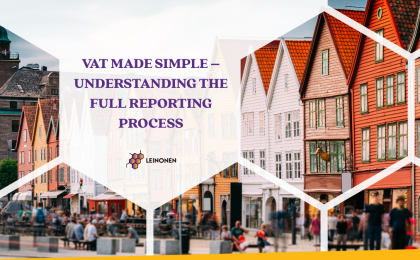In Norway, several regulations will be changing from the beginning of 2024. Let us walk you through the main revisions and the effects they will bring to the Norwegian economy.
Revised employer’s national insurance contributions
Since January 1st, 2023, Norway introduced an additional employer’s national insurance contribution. Employers were required to pay 5% extra on any annual salary or work remuneration exceeding 750,000 NOK. Initially a temporary measure, this policy change aimed to manage contributions for higher-income employees.
However, effective from January 1st, 2024, adjustments will come into effect. The threshold for additional employer’s National Insurance contributions will increase to 850,000 NOK. This shift marks a change in the criteria for employers subject to this additional contribution. For those receiving salaries or remuneration surpassing the new threshold will be subject to the additional 5% employer’s National Insurance contributions on amounts exceeding 850,000 NOK.
The revision in the threshold for additional employers’ National Insurance contributions reflects an evolving fiscal landscape in Norway. It’s aimed at ensuring a fair and balanced contribution system while also adjusting for economic changes and income growth. Connected to the updated policy it will be crucial to avoid potential financial implications for employers and ensure compliance with Norwegian tax regulations.
New increased limit for direct expenditure of operating assets
Presently, Norwegian regulations require the depreciation of substantial operating assets. These assets are deemed significant when their value exceeds 15,000 NOK. However, if an asset costs less than 15,000 NOK, it can be entirely deducted in the year of purchase. The upcoming change will double this limit to 30,000 NOK starting in 2024.
This adjustment holds significance for businesses. With the increased limit, assets valued up to 30,000 NOK can now be fully deducted in the year they are acquired. This change might simplify accounting practices for smaller assets, reducing administrative burdens for companies.
This change presents an opportunity for companies to leverage the increased deduction limit to enhance their operational efficiency and financial stability.
Increased depreciation rate for electric vans will be abolished
Since 2017, electric vans enjoyed a higher depreciation rate—30% annually compared to fossil fuel vehicles’ 24%. This incentive led to a surge in electric van adoption, aligning with sustainability goals.
However in the coming year this accelerated depreciation for electric vans will end. While some see this as a sign of market maturity, others worry it might slow down electric vehicle uptake.
The end of increased depreciation rates signalises a turning point, challenging stakeholders to sustainably drive the electric vehicle revolution through collaboration, innovation, and commitment to a greener future.
Revised Diet Rates in Barracks and for Long-Haul Drivers
Recent changes in Norway will lead the way to a significant increase in the rates for diets in barracks, boarding houses, and dormitories where cooking facilities are unavailable. The daily rate, previously set at 250 NOK, will now stand at 400 NOK. Additionally, long-haul drivers’ diet allowances will also witness a rise, increasing from 350 NOK per day to 400 NOK per day.
This adjustment marks a substantial increment in the daily allowances for individuals residing living in accommodations without cooking amenities.
Also for long-haul drivers, the enhanced rate reflects an understanding of the challenges they face while on the road. The increased allowance seeks to better accommodate their dietary needs during extended periods away from home.
This adjustment reflects the government’s commitment to addressing the changing cost dynamics and supporting individuals in specific living and working conditions.
In conclusion, the recalibration of employers’ national insurance contributions, with an increased threshold effective from 2024, clearly showcases the response to income growth and economic shifts. It seeks to ensure a fair and balanced contribution system while maintaining compliance with tax regulations.
These legal amendments illustrate Norway’s proactive approach to adapting its legislative framework to better serve both its workforce and businesses in our changing landscapes.
If case of any questions, feel free to consult with Leinonen Norway´s team. Further contact details can be found HERE.





